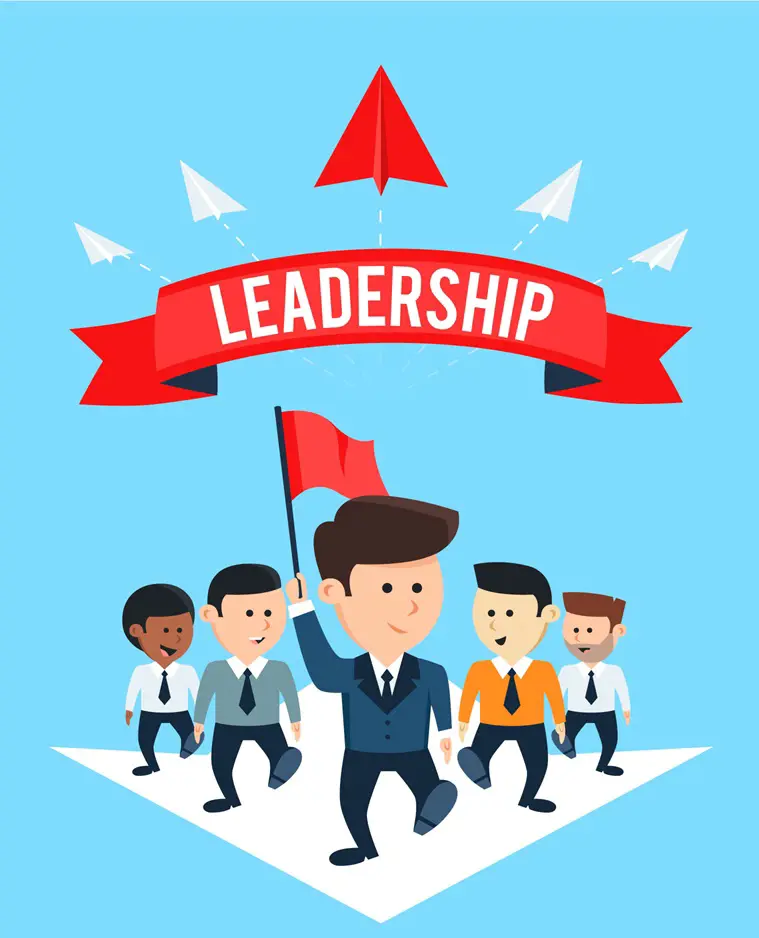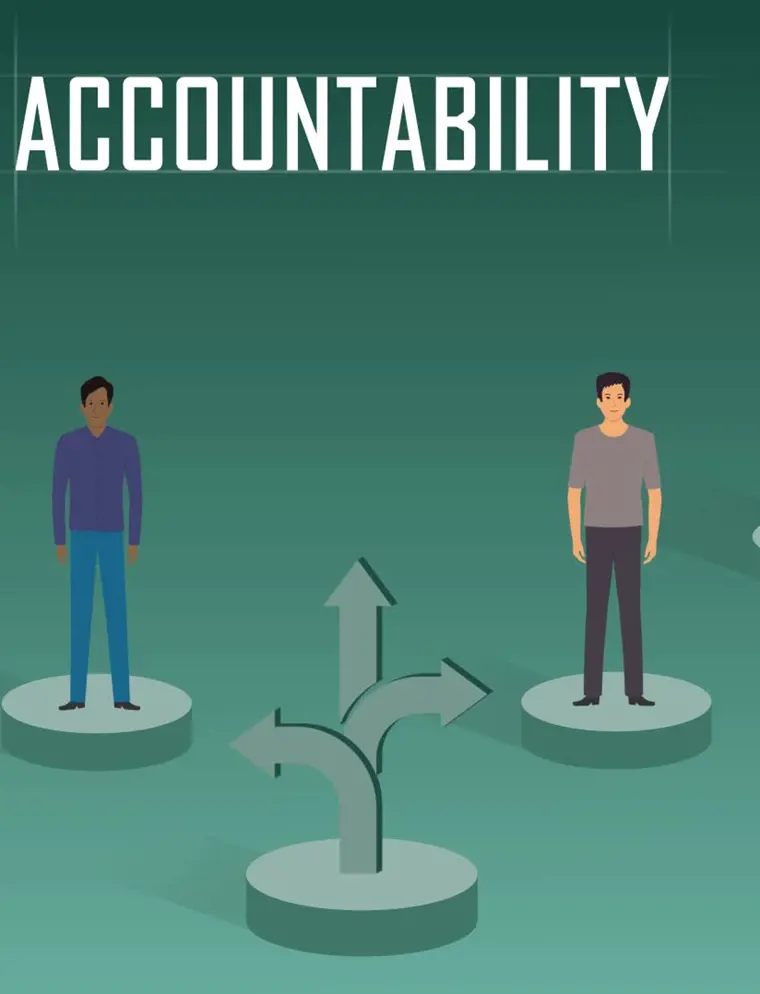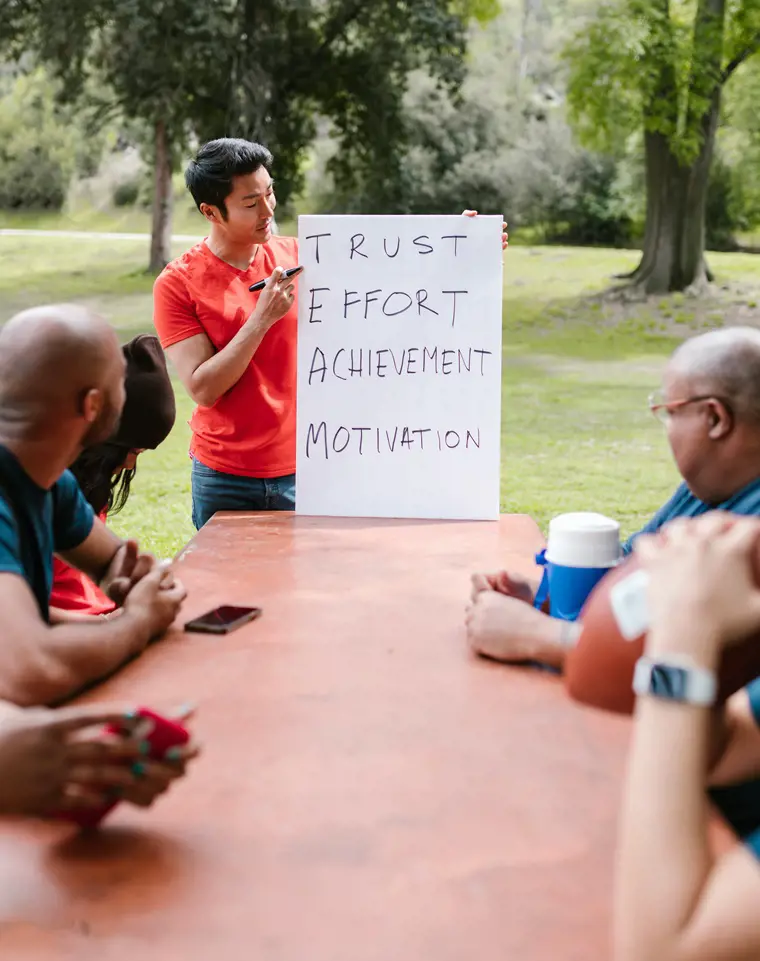
Leadership skills encompass a range of abilities essential for guiding, inspiring, and managing others effectively. Cultivating leadership skills empowers you to inspire trust and drive positive change.
Mastering these skills is crucial as they enable you to communicate visions, make informed decisions, foster teamwork, and navigate challenges adeptly. It creates an environment where both individuals and organizations can thrive, grow, and achieve their objectives.
In this article, you will learn about some of the top list of leadership skills that you should master for both personal and professional development.
1. Communication

Falling on the number one list of top leadership skills, communication is like a lifeblood of human connection. It is a dynamic process of exchanging information, ideas, and emotions through a shared system of symbols.
It manifests in diverse forms, ranging from spoken words and written language to nonverbal cues like body language and facial expressions. Effective communication bridges the gap between individuals, fostering understanding, collaboration, and the building of strong relationships.
2. Decision-Making

The second most important leadership skills is decision-making. It can be mentioned as the intricate dance between deliberation and action that lies at the heart of shaping our lives. It is a dynamic process, weaving together reason, intuition, and information to guide us.
From mundane everyday choices to life-altering crossroads, effective decision-making requires a critical mind, a willingness to weigh options, and a commitment to act with purpose. It is a continuous journey of learning, adapting, and refining the ability to navigate uncertainty.
3. Problem-Solving

Why does problem-solving matter? It's the engine of progress, driving us past obstacles towards innovation and growth. When challenges arise, adept problem solvers don't just react, they dissect issues, uncovering their roots. Their methodical approach and creative mindset unearth unique solutions.
It's not a linear path; it's a playground for diverse perspectives, experimentation, and learning. Collaboration fuels this cycle of trial and refinement, fostering an environment where the best ideas thrive. Problem-solving isn't merely about fixing; it's about shaping a better tomorrow.
4. Organization and Planning

These twin pillars of efficiency guide us through the labyrinth of tasks and deadlines. Organization, the art of bringing order to chaos, involves structuring and prioritizing tasks, allocating resources effectively, and establishing clear workflows.
Planning, its sister skill, anticipates future needs, sets realistic goals, and charts a course of action. Together, organization and planning provide the foundation for achieving goals, fostering collaboration, and navigating the complexities of life with purpose and clarity.
5. Delegation

To create a dynamic environment where individuals flourish and collective goals soar, delegation, the intertwined threads of effective leadership, weave a tapestry of shared responsibility and individual growth.
Delegation, the act of entrusting tasks and authority to others, empowers individuals to take ownership, develop their skills, and contribute meaningfully.
6. Active Listening

This interpersonal leadership skills is a fundamental yet often overlooked skill and stands as the cornerstone of genuine connection and effective communication. It's not just about hearing the words, but rather about deeply immersing oneself in the speaker's message.
Effectively utilizing active listening skills unlocks a world of benefits. It fosters stronger relationships built on trust and understanding, encourages open and honest communication, and minimizes misunderstandings and misinterpretations.
7. Empathy

Leaders who understand the essence of empathy foster environments that transcend boundaries. They grasp the power of walking in others' shoes. Such leaders listen intently, connecting on deeper levels, and recognizing the diverse perspectives within their teams.
Empathy enables them to anticipate needs, inspire trust, and nurture a culture of understanding. These leaders celebrate differences, cultivating a sense of belonging where every voice is heard. It is the cornerstone that empowers leaders to forge stronger and more cohesive teams.
8. Collaboration

Collaboration is not simply about achieving results, but about enriching the journey along the way. It is the catalyst that transforms individuals into a cohesive force, capable of tackling complex challenges, exceeding expectations, and shaping a brighter future.
Through collaboration, individuals learn to think outside the box, embracing creative problem-solving and embracing diverse perspectives. It fosters a culture of mutual respect and understanding, where team members build strong bonds and learn from each other.
9. Motivation And Inspiration

Do you wonder what ignites motivation and inspiration in others? When these two forces are harnessed effectively, they can propel to achieve remarkable things. They empower to overcome challenges, break through self-imposed barriers, and realize full potential.
Together, motivation and inspiration form a powerful alliance. Motivation provides the persistent drive to take action, while inspiration fuels our creativity and expands our vision, guiding us toward innovative solutions and propelling us beyond our perceived limitations.
10. Conflict Resolution

Resolving conflicts reshapes relationships and fortifies unity. It starts by acknowledging differing viewpoints and seeking common ground amidst discord. Leaders adept in conflict resolution foster open dialogue, inviting each voice to be heard and understood.
They navigate tensions with diplomacy, deftly balancing assertiveness with empathy. Solutions emerge through collaborative problem-solving, not domination. These leaders champion understanding, transforming conflicts into opportunities for growth and cohesion.
11. Integrity

Integrity transcends mere adherence to rules. It is a deeply ingrained sense of personal honor, a commitment to upholding our values even when faced with temptation or pressure. It demands courage and conviction, the willingness to stand up for what we believe.
Individuals with integrity inspire trust and respect. Their actions are consistent with their words, and they hold themselves accountable for their decisions. This unwavering reliability fosters strong relationships, builds trust, and paves the way for lasting success.
12. Accountability

Regarded as the cornerstone of strong leadership skills and personal growth, it is a two-way street paved with ownership, transparency, and mutual respect. It’s the willingness to accept responsibility for our actions and decisions, both positive and negative, and to be held answerable.
Effective leaders foster a culture of accountability by setting clear goals, delegating tasks effectively, and providing ongoing support and guidance. They empower individuals to take ownership of their work, encouraging initiative and responsibility.
13. Adaptability And Flexibility

Are adaptability and flexibility important? Absolutely. They're like superpowers in a changing world. Being adaptable means rolling with the punches, and adjusting when things shift. Flexibility is about bending, not breaking, when facing new challenges.
Those who are adaptable thrive in different situations, finding ways to make things work. Being flexible means staying nimble, and ready to tackle whatever comes their way. In a fast-paced world, these qualities aren't just helpful, they're essential for success.
14. Continuous Learning

This unwavering pursuit of knowledge and growth is not merely a pursuit, but a lifelong adventure. It transcends the confines of formal education, extending throughout our entire lives, enriching our experiences, and shaping our understanding of the world.
To succeed, keep seeking knowledge, whether from books, experiences, or people. It's about staying open-minded, trying new stuff, and making mistakes along the way. In this journey, every lesson learned is a step forward.
15. Resilience

Resilience is not about avoiding pain or hardship. It's about acknowledging the difficulty, accepting the reality of the situation, and choosing to move forward with courage and hope. It involves a positive outlook, a strong sense of self-belief, and the ability to adapt.
Leaders with strong resilience possess a toolbox of coping mechanisms, drawing upon support systems and a healthy perspective to navigate challenges. They are able to reframe negative experiences into opportunities for growth and learning valuable lessons.
16. Vision And Mission

They are distinct concepts that play crucial roles in guiding individuals and organizations toward success. While vision focuses on the aspirational future, outlining the desired state of being, mission defines the present, detailing the purpose, goals, and values.
The interplay between vision and mission is critical for effective leadership. A clear vision without a defined mission can lead to confusion and aimless wandering. Similarly, a well-defined mission without a long-term vision can limit an organization's potential and its growth.
17. Strategic Thinking

It is the ability to analyze complex situations, anticipate future trends, and make decisions that position you for long-term success. It's a vital skill in today's rapidly changing world, where adaptability and foresight are crucial for both individuals and organizations.
Developing strategic thinking involves continuous learning, reflection, and challenging yourself. Remember, it is a journey, not a destination. By embracing it as a lifelong practice, you can chart a course toward success and navigate challenges with confidence.
18. Risk Management

Do you know that one of the crucial leadership skills is effective risk management? It transcends mere risk-taking, encapsulating the capacity to comprehend, assess, and mitigate potential hazards. Proficient leaders adept in this skill navigate uncertainties with finesse.
Their adeptness not only shields against adverse impacts but also cultivates an environment primed for innovation and growth. It's the strategic handling of risks that sets exceptional leaders apart, shaping resilient organizations capable of weathering storms.
19. Change Management

Change is inevitable. It's a constant presence in our lives, both personal and professional. In the dynamic world of business, change occurs even more rapidly, requiring organizations to be adaptable and resilient. This is where change management comes into play.
Change management can be likened to a bridge, guiding individuals and organizations through the often turbulent waters of transition. It's a structured approach to implementing change in a way that minimizes disruption and maximizes the chances of success.
20. Empowerment

This is a vital leadership skill as it fosters efficiency, growth, and team development. Empowerment instills trust and confidence, encouraging autonomy and innovation among members.
By delegating effectively and empowering individuals, leaders cultivate a culture of ownership, motivation, and continuous improvement. This not only relieves leaders of excessive burdens but also unlocks the full potential of teams, fostering engagement and driving success.
Why Is It Important To Have A Leadership Skill?

Leadership skills are crucial for several reasons, both in professional and personal settings:
- Guidance: Leaders provide direction and guidance to achieve common goals. Without leadership, teams or organizations may lack direction and struggle to progress.
- Motivation: Effective leaders inspire and motivate individuals or teams to perform at their best. Their encouragement fosters productivity and engagement.
- Decision-Making: Leaders often have to make critical decisions. Good leadership skills facilitate sound decision-making, considering various perspectives and implications.
- Conflict Resolution: Conflicts are inevitable. Leaders skilled in conflict resolution can address issues promptly, reducing disruptions and fostering a healthier working environment.
- Team Building: Effective leaders build strong teams by leveraging individual strengths, fostering collaboration, and creating a positive work culture.
In essence, leadership skills are the backbone of effective management, team dynamics, and personal growth. They play a pivotal role in shaping successful individuals and organizations.
Some Example of Leadership Skills

The skills collectively contribute to effective leadership, enabling individuals to lead teams, organizations, and initiatives with success and impact. Here are some leadership skills examples:
- Empathy: Understanding others' perspectives, showing compassion, and considering emotions in decision-making.
- Delegation: Assigning tasks based on strengths, trusting team members, and providing necessary support.
- Conflict Resolution: Mediating conflicts, listening impartially, and finding mutually beneficial solutions.
- Strategic Thinking: Planning long-term objectives, anticipating future trends, and aligning actions with goals.
- Innovation: Encouraging creativity, embracing change, and implementing new ideas.

